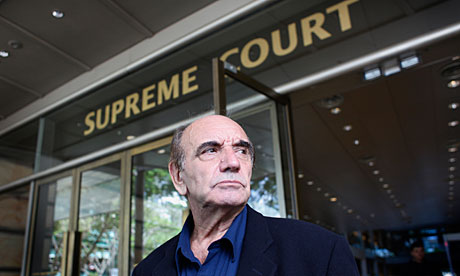By Eric C. Sigmund
Impunity Watch Reporter, Middle East
TEHRAN, Iran – The head of Iran’s High Human Rights Council announced today that Sakineh Mohammadi-Ashtiani, an Iranian women sentenced to death by stoning for committing adultery, “could be saved.” It appears that the judiciary’s latest review of Ashtiani’s case precipitated the announcement although no details about its review were provided. Ashtiani’s case has drawn significant international criticism from numerous governments and human rights organizations urging Iran to set aside the stoning verdict.
Ashtiani’s sentence has been stayed since July, pending the resolution of the judiciary’s final review. She has been on death row for four years and has already dodged one death sentence. In 2006, Ashtiani was found guilty for her involvement in the murder of her husband and received a sentence of death by hanging. This sentence was reduced however, to a 10 year prison term.
Ashtiani has already suffered 100 lashes as punishment for her crime. Reports indicated that she has also been beaten up and tortured on a number of occasions. Some fear that she may be tried a second time for the murder of her husband despite already being found guilty of complicity in his death. If she is found guilty, she may again be sentenced to death.
Since 1983, stoning has been the traditional punishment for the crime of adultery under Iran’s Islamic Penal Code. Although the government has imposed a moratorium on the use of this punishment, the government has yet to officially abandon the practice and courts continue to issue stoning sentences. According to Farshad Hoseini, head of the International Committee against Execution, at least 150 people have been stoned to death in Iran since 1980. The majority of the victims were women. Although the government denies any correlation between today’s announcement and the political pressure it has faced from this case, it seems likely that the international community’s efforts are a significant factor in the process to commute Ashtiani’s sentence.
For more information, please see:
Agence France Presse – Iran Stoning woman’s Life ‘Could be Spared’ – 22 Nov. 2010
Jerusalem Post –Life of Woman in Iran Stoning Case May be Saved – 22 Nov. 2010
National Post – Iran’s Stone-Age Justice system – 19 Nov. 2010
CBS News – Case of Sakineh Ashtiani Reflects Iran’s internal Divisions – 18 Nov. 2010


